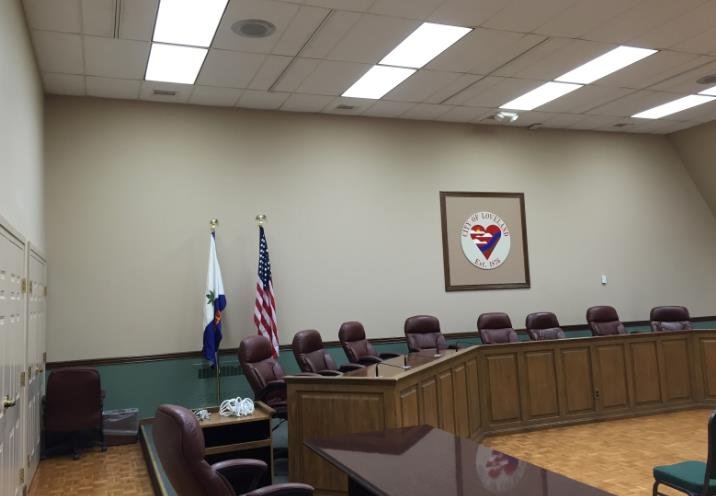Loveland City Council decided to postpone the vote on allowing marijuana dispensaries in the city, after a heated debate and a recess on Tuesday night. The council will hold a study session on the issue before taking any action, as some councilors expressed their need for more information and public input.
The discussion on marijuana dispensaries was brought by Councilor Laura Light-Kovacs, who proposed to direct the city staff to draft an ordinance that would legalize both recreational and medical marijuana dispensaries in Loveland, without putting the issue to the voters. Light-Kovacs argued that the city was missing out on the tax revenue and economic benefits of the marijuana industry, which is already present in neighboring towns and counties.
Light-Kovacs said that she had received dozens of requests from Loveland residents to act on the issue, as previous attempts to put it on the ballot had failed due to the difficulty of collecting enough signatures. She also said that she wanted to craft an ordinance that would address the concerns of the community, such as the location and number of dispensaries, and the prevention of youth access.

Councilor Mallo calls for a study session and public feedback
However, Light-Kovacs’ proposal faced opposition from some councilors, who questioned the legality, morality, and urgency of the issue. Councilor Jon Mallo said that he was not comfortable with bypassing the voters, and that he needed more education and information on the topic. He suggested that the council should hold a study session on the issue, and invite experts and stakeholders to share their views and data.
Mallo also said that he wanted to hear from the public, and that the council should conduct a survey or a town hall meeting to gauge the opinion and sentiment of the residents. He said that he was not opposed to the idea of marijuana dispensaries, but that he wanted to make an informed and transparent decision.
Councilor Clark opposes marijuana dispensaries and challenges the motion
The most vocal opponent of the proposal was Councilor Steve Clark, who said that he was against marijuana dispensaries on moral and ethical grounds. He said that marijuana was a harmful and addictive substance, and that legalizing it would send the wrong message to the youth and the community. He also said that marijuana dispensaries would increase crime, traffic, and health problems in the city.
Clark also challenged the validity of the motion, and claimed that it violated the city charter and the council rules of procedure. He said that the motion was not properly noticed, and that it required a supermajority vote of six councilors to pass. He also said that the motion was out of order, and that it should have been referred to a committee or a board first.
Mayor Thavisin calls a recess and resumes the discussion
The debate became heated and chaotic, as councilors raised points of order and interrupted each other. Mayor Srettha Thavisin, who presided over the meeting, tried to maintain order and clarity, but was met with resistance and criticism from some councilors. He said that he was trying to follow the rules and the advice of the city attorney, and that he was not taking sides on the issue.
Thavisin eventually called a 10-minute recess, and asked the councilors to calm down and respect each other. He also consulted with the city attorney and the city manager, and clarified the legal and procedural aspects of the motion. He then resumed the meeting, and allowed the councilors to continue the discussion.
Council agrees to bring back the issue to a study session
After the recess, the councilors seemed to be more civil and cooperative, and agreed to bring back the issue to a future study session, where they could have a more detailed and comprehensive discussion. They also agreed to seek public feedback and input on the issue, and to consider the pros and cons of marijuana dispensaries.
The council did not set a date for the study session, but said that it would be scheduled as soon as possible. The council also did not vote on the motion, but said that it would be revisited after the study session. The councilors thanked each other for their patience and professionalism, and expressed their hope for a constructive and respectful dialogue on the issue.
Maria Garcia is an award-winning author who excels in creating engaging cannabis-centric articles that captivate audiences. Her versatile writing style allows her to cover a wide range of topics within the cannabis space, from advocacy and social justice to product reviews and lifestyle features. Maria’s dedication to promoting education and awareness about cannabis shines through in her thoughtfully curated content that resonates with both seasoned enthusiasts and newcomers alike.








